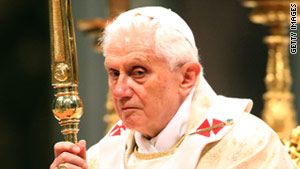from the New York Times; written by John F. Burns

LONDON — Faced with growing alarm about Islamic militants who have made Britain one of Europe’s most active bases for terrorist plots, Prime Minister David Cameron has mounted an attack on the country’s decades-old policy of “multiculturalism,” saying it has encouraged “segregated communities” where Islamic extremism can thrive.
Speaking at a security conference in Munich on Saturday, Mr. Cameron condemned what he called the “hands-off tolerance” in Britain and other European nations that had encouraged Muslims and other immigrant groups “to live separate lives, apart from each other and the mainstream.”
He said that the policy had allowed Islamic militants leeway to radicalize young Muslims, some of whom went on to “the next level” by becoming terrorists, and that Europe could not defeat terrorism “simply by the actions we take outside our borders,” with military actions like the war in Afghanistan.
“Europe needs to wake up to what is happening in our own countries,” he said. “We have to get to the root of the problem.”
In what aides described as one of the most important speeches in the nine months since he became prime minister, Mr. Cameron said the multiculturalism policy — one espoused by British governments since the 1960s, based on the principle of the right of all groups in Britain to live by their traditional values — had failed to promote a sense of common identity centered on values of human rights, democracy, social integration and equality before the law.
Similar warnings about multiculturalism have been sounded by Chancellor Angela Merkelof Germany and by President Nicolas Sarkozy of France. But, if anything, Mr. Cameron went further. He called on European governments to practice “a lot less of the passive tolerance of recent years and much more active, muscular liberalism,” and said Britain would no longer give official patronage to Muslim groups that had been “showered with public money despite doing little to combat terrorism.”
Perhaps most controversially, he called for an end to a double standard that he said had tolerated the propagation of radical views among nonwhite groups that would be suppressed if they involved radical groups among whites.
Muslim groups in Britain were quick to condemn the speech, among them the Muslim Council of Great Britain, a major recipient of government money for projects intended to combat extremism. Its assistant secretary general, Faisal Hanjra, said Mr. Cameron had treated Muslims “as part of the problem as opposed to part of the solution.”
A Muslim youth group, the Ramadhan Foundation, accused the prime minister of feeding “hysteria and paranoia.” Mohammed Shafiq, the group’s chief executive, said Mr. Cameron’s approach would harden the divide between Muslims and non-Muslims, “and we cannot allow that to happen.”
British leaders, particularly from the Conservative Party, which Mr. Cameron leads, have mostly been careful to avoid arguments that might expose them to charges of holding racially tinged views since a notorious speech in 1968 in which Enoch Powell, a leading Conservative, warned of “rivers of blood” if nothing was done to curb Caribbeanimmigration to Britain.
“We have failed to provide a vision of society to which they feel they want to belong,” Mr. Cameron said, speaking of immigrant groups, dominated by Muslims, whose numbers have been estimated in some recent surveys at 2.5 million in Britain’s population of 60 million. Britain’s domestic intelligence service, MI5, has said that as many as 2,000 Muslims in Britain are involved in terrorist cells, and that it tracks dozens of potential terrorist plots at any one time.
Mr. Cameron continued: “We have even tolerated these segregated communities behaving in ways that run counter to our values. So when a white person holds objectionable views — racism, for example — we rightly condemn them. But when equally unacceptable views or practices have come from someone who isn’t white, we’ve been too cautious, frankly even fearful, to stand up to them.”
The prime minister pointed to several steps the government planned that would tackle the rise of extremism. Among these, he said, would be barring “preachers of hate” from visiting Britain to speak in mosques and community centers; stopping Muslim groups that propagate views hostile to values of gender equality, democracy and human rights “from reaching people in publicly funded institutions like universities and prisons”; and cutting off government support for such groups.
The prime minister’s speech came at the end of a week in which Britain’s role as a base for Islamic terrorists as well as the behind-the-scenes pressure applied by the United States for actions that would deal more effectively with the threat have drawn fresh attention.
On Thursday, the government’s official watchdog on antiterrorist issues, Lord Alexander Carlile, issued a final report before retiring in which he said that Britain had become a “safe haven” for terrorists, primarily because of rulings by the European Court of Human Rights, that made it difficult to deport people considered terrorist risks, and other decisions that curbed the application of British antiterrorist laws.
For years, and particularly since the attacks of Sept. 11, 2001, American officials have been frustrated by what they see as an insufficiently robust crackdown on terrorist groups in Britain, which have been identified in Congressional testimony and elsewhere as a leading threat to American security.
for the original article click here


